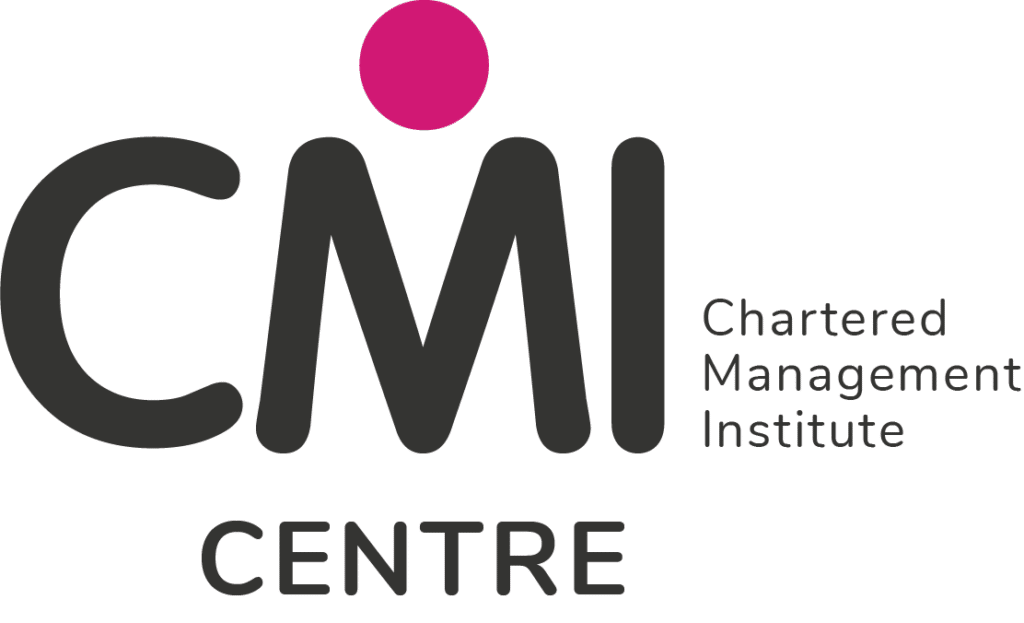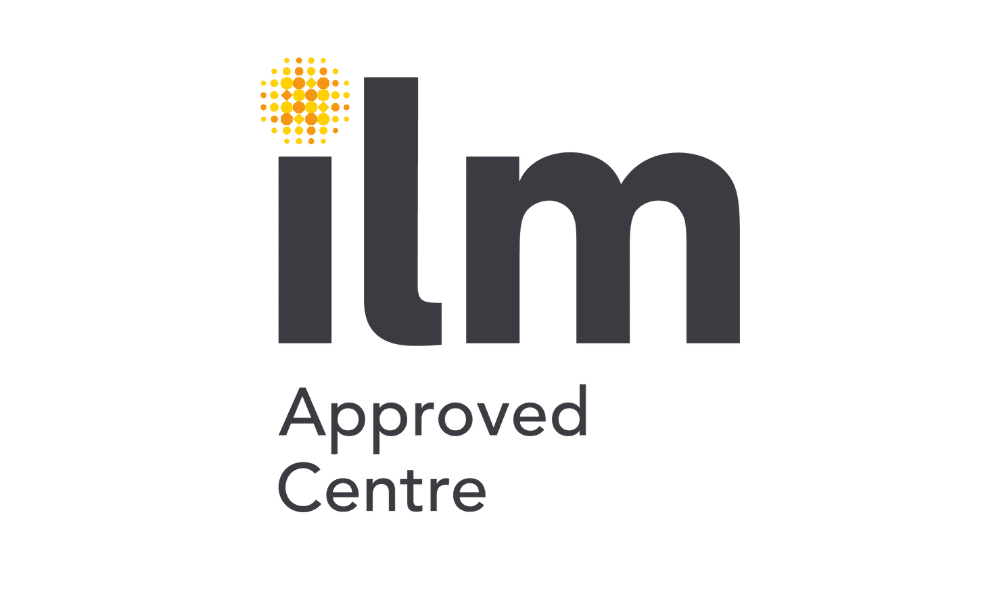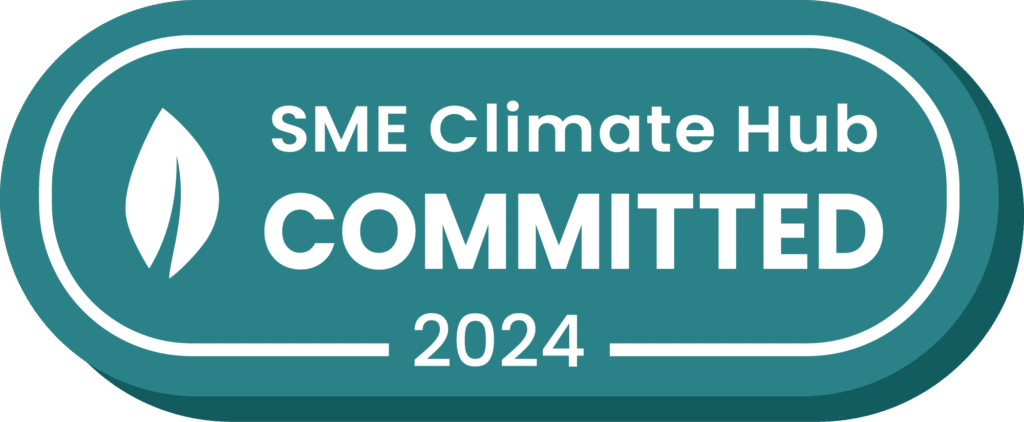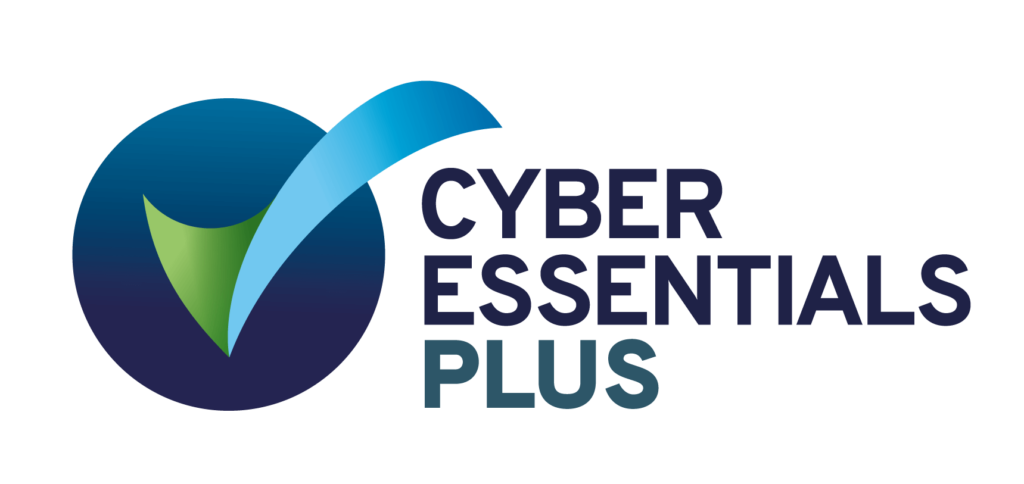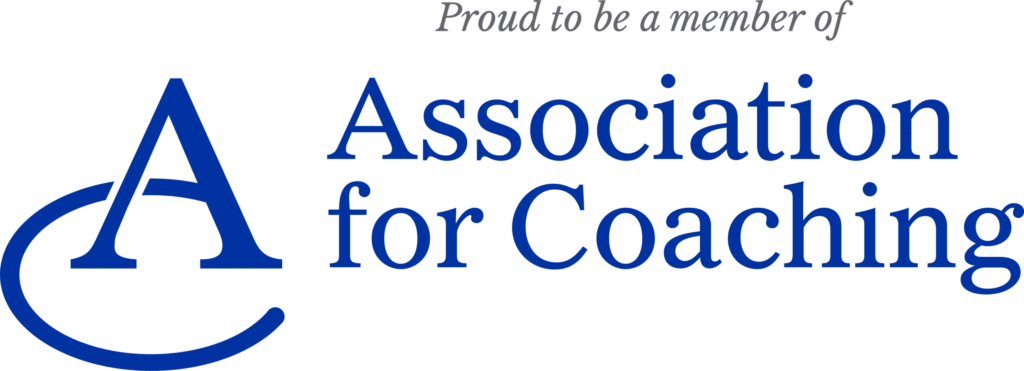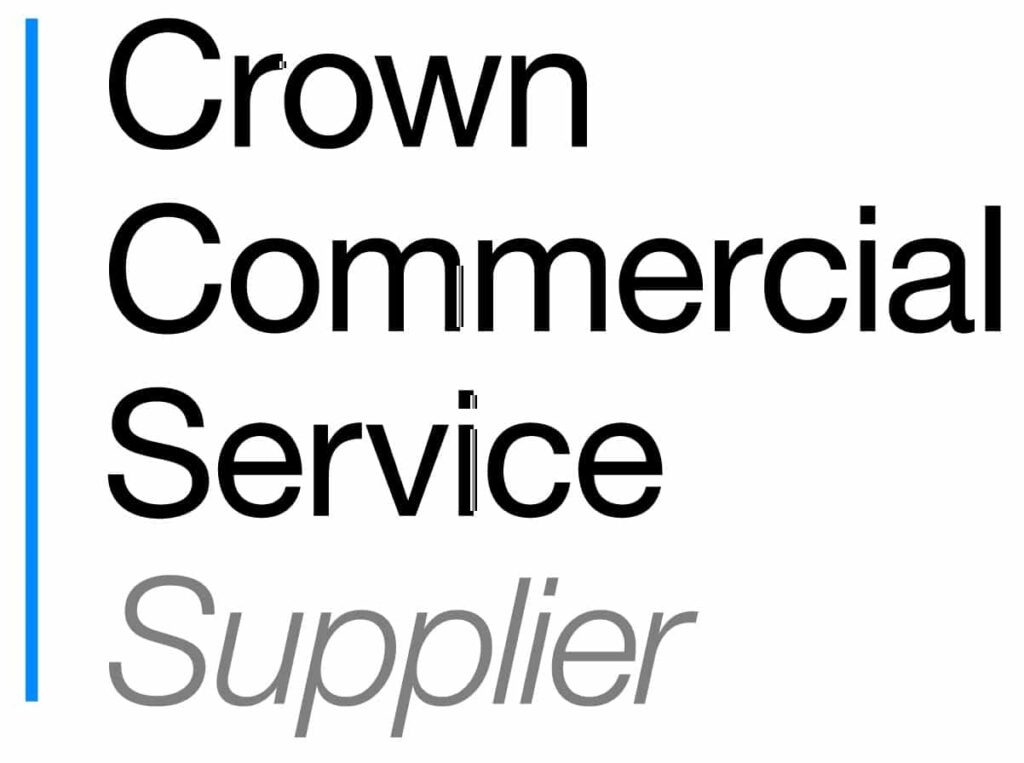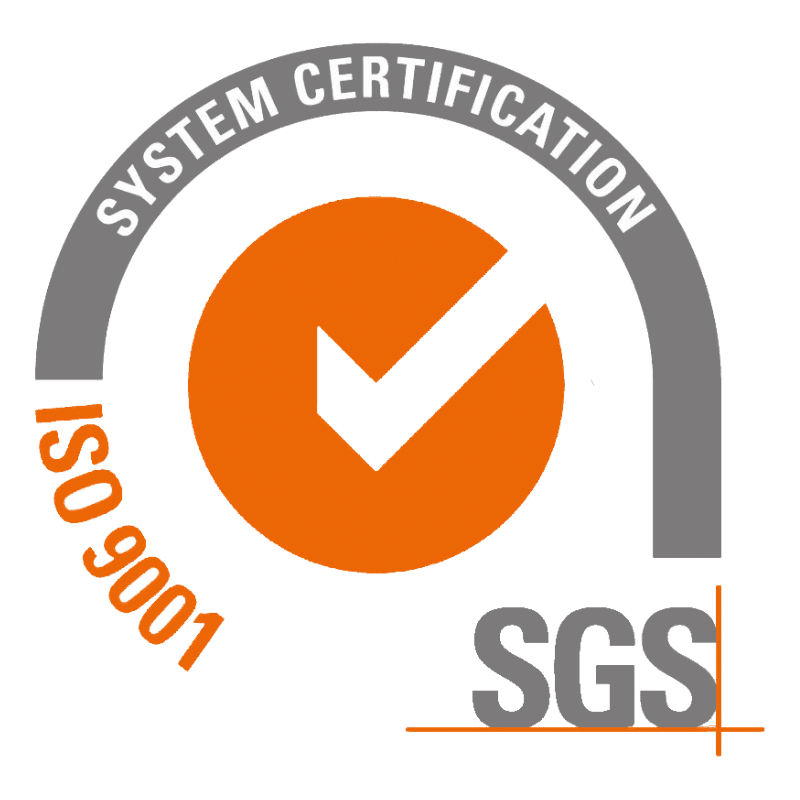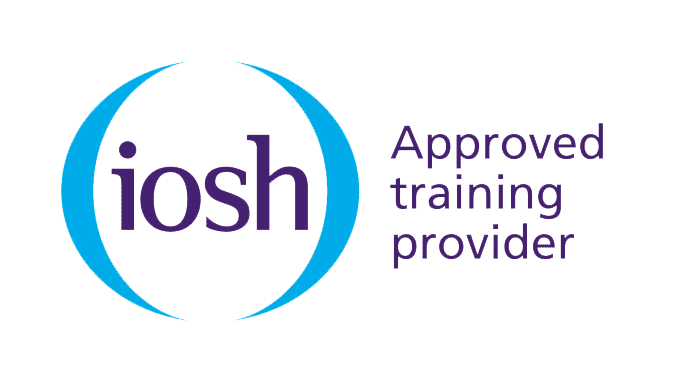One of the ways we support our learning partners and customers is by sharing insight. Much of this comes from our experience and subject matter expertise in all areas of professional learning and organisational development, but plenty also comes from the invaluable research that various organisations do to illuminate the reality of the professional skills landscape and make recommendations for best practice and future success.
As part of that process, and because the time to sit down and read through whitepapers and research reports is not always easy to protect, we are pleased to share our concise summaries of some recent publications.
Stop winging it: Management skills make hybrid working work
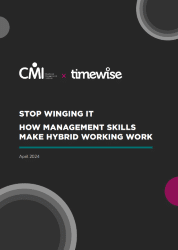
Published by The Chartered Management Institute (CMI) in partnership with Timewise. Link to full report.
It would be fair to say that the Covid-19 pandemic impacted every single aspect of modern life in some way. In the professional landscape, it changed the where and how of day-to-day work for millions of people, almost overnight – changes which, for many, have stuck around in the form of ‘hybrid’ or ‘flexible’ working arrangements.
For managers and leaders, this posed a number of challenges as they tried to motivate, communicate with and manage the performance of newly-dispersed teams. In the moment, Eliesha supported a number of customers with targeted learning programmes to support their staff, such as our virtually-delivered ‘Positive Learning Through Uncertain Times’ programme for UKRI, the Government body responsible for directing over £6 billion of funding. We also redesigned leadership programmes for virtual delivery and factored the context of ‘hybrid’ and ‘remote’ into long-running development projects.
In the aftermath of the pandemic, we are now delivering more virtual training than face-to-face training, as employers look to avoid physical location becoming a barrier to accessing learning and development opportunities. However, the value of the face-to-face classroom cannot be overlooked and has not gone away; customers are still choosing face-to-face delivery for particular programmes in order to sharpen focus and maximise engagement. This is a choice we are particularly seeing with senior leadership development, where, although their diary time is at its most precious and contested, this is outweighed by the benefits gained from learners having a shared physical space to communicate, collaborate and network.
As a leading voice in the ‘best practice’ of management and leadership skills and behaviours, the Chartered Management Institute published this report in April 2024, shedding fascinating light on why managers are the ‘linchpins’ of hybrid work and exactly how they need to be ‘equipped for the hybrid revolution’.
Key points
- Details a 2023 pilot training programme for managers (“Making hybrid work for you and you’re your team”) delivered by Timewise, a social enterprise that aims to create more inclusive workplaces, and evaluated by CMI
- Management plays a critical role in ensuring effective work is done by dispersed teams with increasingly individual workloads, schedules and movements
- The behaviour of leaders and managers is extremely important in lowering or removing barriers of access to remote work and ensuring that the hybrid office is not an exclusionary one
- Sticking points for the leaders of hybrid teams include, but are not limited to:
- Changing deeply ingrained habits
- Maintaining schedules in a less predictable working day
- Monitoring “who’s doing what”
- Fostering and coordinating formal and informal collaboration
- Fair distribution of work
- Ensuring cultural cohesion and maintaining a “sense of belonging to the wider organisation”
- ‘Onboarding’ new starters and getting them the necessary development opportunities
Three key recommendations
- Assess your hybrid managers for competence and capacity in the ‘ten key skills’ that make up the ‘hybrid handbook’ and use this analysis to provide targeted learning support. The ten key skills are:
- Listening
- Self-awareness
- Communication
- Inclusivity/fairness
- Transparency
- Meticulousness
- Building connection/cohesion
- Assertiveness
- Mixing synchronous and asynchronous communication channels
- Empowerment
- Treat hybrid working as a positive to be embraced, not a new necessity to be ‘coped with’ – get conspicuous buy-in from the very top of the organisation and get leadership to ‘bang the drum’ for hybrid arrangements as loudly as employees do.
- Don’t treat training as ad-hoc in relation to hybrid working/leading – reacting to problems that are reported back – instead take a proactive approach that distributes the necessary tools before they’re needed in a critical capacity.
Two key stats
- Before the pilot training programme, only 32% of learners understood the biases that can emerge in hybrid working and how to mitigate them
- Before the pilot training programme, just 43% of learners were confident at keeping their teams motivated.
One key quote:
“To be truly effective requires line managers to have a key co-ordinating role to ensure flexible working fulfils the needs of the individual, while enabling [it to] fit with the needs of the team and wider organisation … this requires a move away from one-size-fits-all strategies towards a tailored approach.”
Training Trends 2023
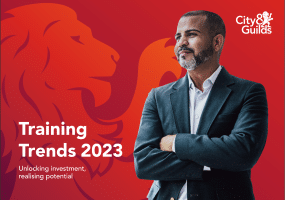
Published by City & Guilds. Link to full report.
As a training provider that takes pride in forming long-term, trusted learning partnerships with our customers, staying on top of trends is an important part of our work. Our customers keep coming back to work with us not just because we can answer the question “What’s new?”, but because they know we will apply this knowledge to their specific challenges and priorities, rather than recommending the latest, most popular solution simply because it is new and popular.
We gather the insight of our extensive network of expert trainers, facilitators, designers and coaches, take note of the common conversations we are having with our customers and – where possible – conduct our own research. We also pay attention to the research and reports that our other learning partners conduct, particularly when this consolidates the views of key decision makers.
Eliesha is an Approved Centre with ILM, a City & Guilds business. We deliver extensively their popular Coaching & Mentoring and Leadership & Management qualifications from Level 2 through Level 7, to cohorts via virtual and face-to-face delivery, as well as to individuals via distance learning. City & Guild’s ‘Training Trends’ reports are invaluable ‘litmus tests’ for our industry and particularly useful because they focus on negative trends as well as positive ones – because an accurate picture of the landscape is more important than a rose-tinted one! Below, we’ve unpacked the key points from Training Trends 2023, as well as sharing three key recommendations, two key statistics and one key quote.
Key points
- A survey of L&D and finance leaders at more than 600 UK-based B2B businesses with an international footprint
- Positive trends:
- Training identified as the top driver of business growth by the majority of surveyed decision makers
- Majority of organisations planning to invest more in training in coming year
- Improved performance and productivity identified as top training benefits
- Negative trends:
- Investment in non-mandatory staff training at risk of being deprioritized
- Misalignment between L&D and finance functions in key areas, including readiness to meet future skills needs
- L&D budgets are under pressure
Three key recommendations
- Increase the quantity and quality of communication between L&D teams and budget-holders/decision-makers. This helps to link the training vision to organisational goals and identify KPIs that work.
- Acknowledge that there’s no such thing as ‘perfect training’ and use this to fuel a commitment to continuous improvement. To remain competitive and grow, the requirement for learning and training will never go away and there will be no point that any workforce is totally static or ‘fully trained’, so understanding its impact and maximising its impact require a long-term strategic approach.
- Budget-holders/decision-makers and L&D teams can co-create highly effective training by mapping out a shared journey. This collaboration creates a vital sense of co-ownership.
Two key statistics
- One third of surveyed HR/L&D decision-makers said the top area they want more support with is aligning their training programmes with the strategic goals and priorities of the wider business
- Only 30% of respondents ‘strongly agreed’ that their training programmes are high quality
One key quote
“Just because you train your staff, it doesn’t mean that your training is effective and successful. The key to elevating in-house training is in a structured approach: a proactive training strategy focuses on improved performance of staff rather than just fixing problems or skills gaps.”
